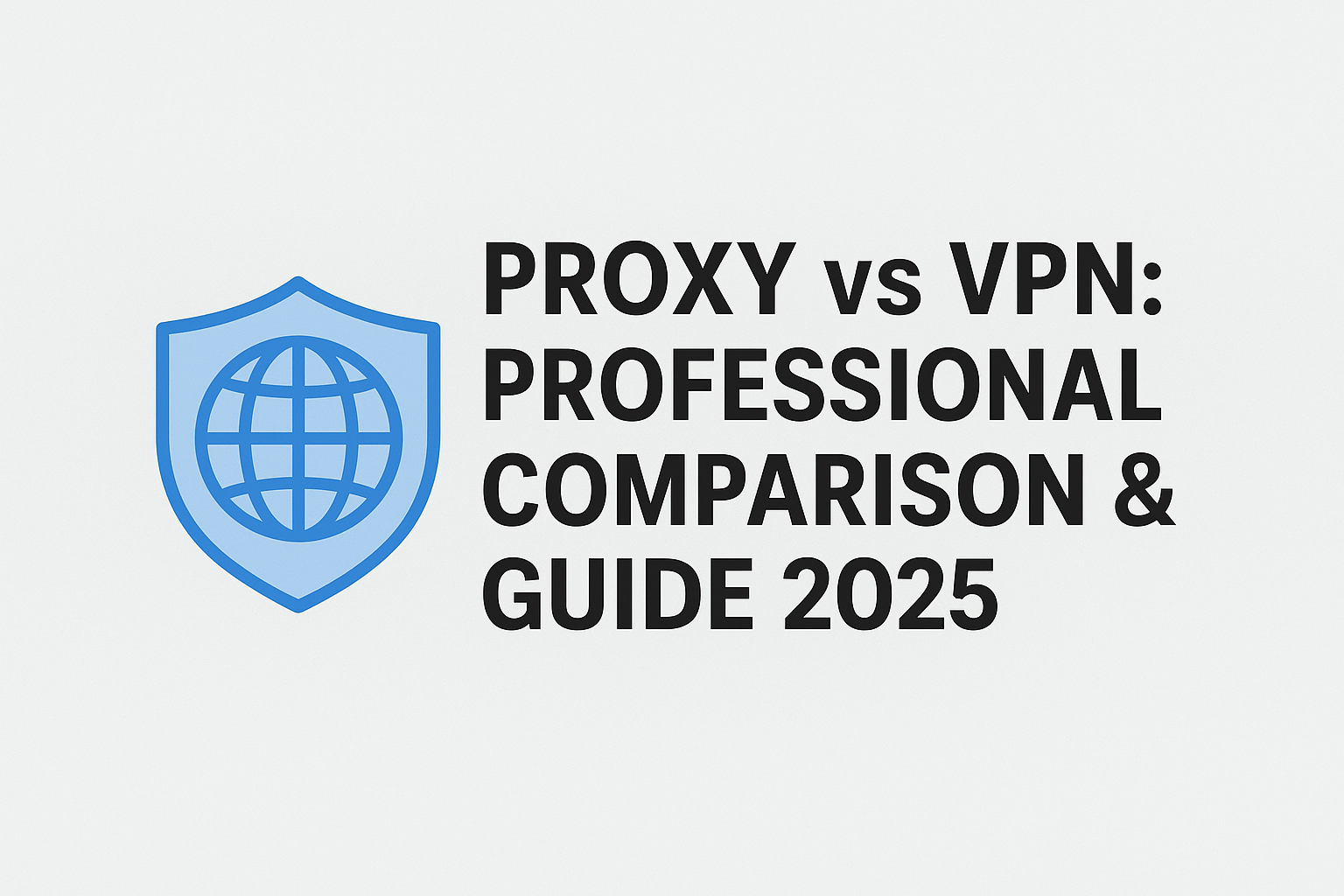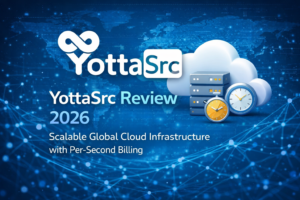Proxy vs VPN: Professional Comparison & Guide 2025
Explore the differences, advantages, and best use cases of proxies and VPNs for secure and private browsing.
Introduction to Online Privacy Tools
In the digital age, protecting your online identity is more important than ever. Cybersecurity threats, surveillance, and content restrictions are increasingly prevalent. Proxy vs. VPN GuideTwo popular tools for enhancing privacy and accessing blocked content are Proxies and Virtual Private Networks (VPNs). While they may seem similar at first glance, their mechanisms, benefits, and limitations differ significantly.
In this guide, we will dive deep into proxies and VPNs, compare their features, analyze use cases, and provide actionable tips for choosing the best solution for your needs in 2025.
What Is a Proxy?
A proxy server serves as an intermediary between your device and the internet. When you connect through a proxy, your requests are routed through the proxy server, which forwards them to the destination website. This masks your original IP address and can make it appear as if your request comes from a different location.
Types of Proxies
- HTTP Proxy: Designed for web browsing, routes HTTP requests.
- HTTPS Proxy: Supports encrypted HTTPS connections.
- SOCKS Proxy: Works for any kind of traffic, including emails, torrents, and games.
- Transparent Proxy: Often used in workplaces, does not hide your IP but can cache data to improve speed.
Advantages of Using a Proxy
- Bypass geographical restrictions and access blocked websites.
- Improved speed for certain web-based applications due to caching.
- Testing and development: Useful for checking websites from different locations.
- Lightweight solution: Consumes fewer resources than VPNs.
Limitations of Proxies
- No end-to-end encryption: Your data can be intercepted by ISPs or hackers.
- Limited protection: Only works for specific applications configured to use the proxy.
- Privacy risks: Free proxies may log your activity.
- Inconsistent performance: Speeds can vary depending on the server load.
What Is a VPN?
A Virtual Private Network (VPN) encrypts all internet traffic from your device and routes it through a secure server in a location of your choice. This ensures that your data remains private, protects your identity, and allows you to bypass censorship or geo-blocks.
Key Features of VPNs
- End-to-end encryption: All traffic is encrypted using advanced protocols like OpenVPN, WireGuard, or IKEv2.
- IP address masking: Hides your real IP from websites, ISPs, and potential hackers.
- Device-wide protection: Works across all applications and services on your device.
- Secure public Wi-Fi: Protects against hackers on open networks.
Advantages of VPNs
- High level of privacy and anonymity online.
- Bypass geo-restricted streaming and websites safely.
- Encrypt sensitive communications like emails and online banking.
- Protect data on multiple devices simultaneously.
Limitations of VPNs
- Potential slower speeds due to encryption.
- Some free VPNs may log data or inject ads.
- Requires installation and configuration on your device.
Proxy vs VPN: Detailed Feature Comparison
| Feature | Proxy | VPN |
|---|---|---|
| Encryption | No | Yes |
| IP Address Masking | Yes | Yes |
| Device Coverage | Single Application | Entire Device |
| Speed | High (no encryption) | Moderate (encryption may slow connection) |
| Security | Low | High |
| Privacy | Low | High |
| Cost | Often Free or Low | Subscription Required |
When to Use a Proxy
Proxies are suitable for:
- Quickly accessing blocked websites from one browser.
- Web scraping, testing, or SEO research requiring multiple IPs.
- Temporary bypassing network restrictions in workplaces or schools.
Best Practices for Proxies
- Use reputable proxy servers to avoid logging and tracking.
- Do not transmit sensitive data through unencrypted proxies.
- Combine proxies with secure browsers for better anonymity.
When to Use a VPN
VPNs are ideal for:
- Online banking, financial transactions, and sensitive communications.
- Streaming geo-blocked content safely on multiple devices.
- Protecting data on public Wi-Fi networks.
- Maintaining privacy against ISPs and surveillance agencies.
Tips for VPN Usage
- Choose VPNs with no-log policies for maximum privacy.
- Select servers closer to your location for better speed.
- Enable kill switch to prevent accidental exposure if VPN disconnects.
Security Risks and Considerations
Both proxies and VPNs have potential risks if misused:
Proxy Risks
- Data interception by untrusted proxy servers.
- Exposure of personal information without encryption.
- Possible injection of ads or malware by free proxy services.
VPN Risks
- Free VPNs may log your activities.
- VPN provider’s jurisdiction may affect privacy protections.
- VPN failures may leak your real IP if kill switch is disabled.
Advanced Considerations for 2025
Integration with Modern Browsers and Devices
VPNs now offer seamless integration with desktop, mobile, smart TVs, and browser extensions. Proxies are still mostly limited to browser or single-application use.
Performance Optimization
Modern VPNs implement high-speed protocols like WireGuard to reduce latency. Proxies may offer faster raw speeds but cannot match VPNs in security and versatility.
Legal and Compliance Factors
Businesses may require VPNs for secure remote work. Proxies are generally insufficient for regulatory compliance where encryption and logging policies matter.
Frequently Asked Questions (FAQs)
Can I use both a proxy and a VPN together?
Yes, chaining a proxy with a VPN can provide additional anonymity, though it may reduce speed slightly.
Are free VPNs reliable?
Some free VPNs are functional, but they often log data, limit speed, or inject ads. Paid VPNs provide better privacy and reliability.
Does a VPN slow down my internet?
Encryption may cause minor speed reduction, but modern protocols and server optimization minimize impact.
Can a proxy hide my IP on all apps?
No, proxies usually work only on configured apps or browsers, unlike VPNs which cover the entire device.
Conclusion
In 2025, online privacy and security are paramount. Both proxies and VPNs serve specific purposes:
- Proxies: Fast, easy, suitable for single-application use and content testing.
- VPNs: Secure, device-wide protection, ideal for sensitive data, streaming, and complete anonymity.
Choosing between them depends on your priorities: speed and convenience versus security and privacy. Understanding their differences ensures you select the most suitable tool for your online activities.




